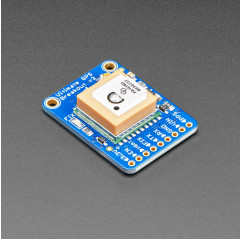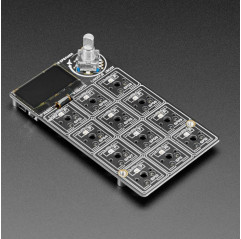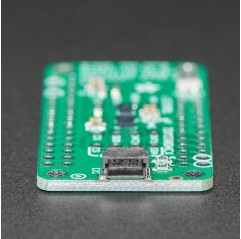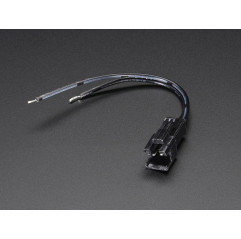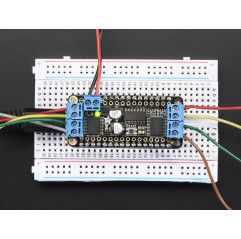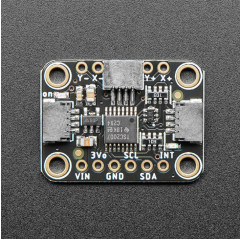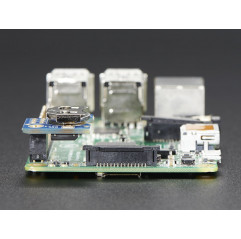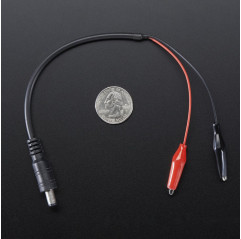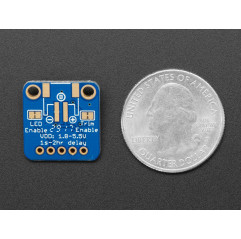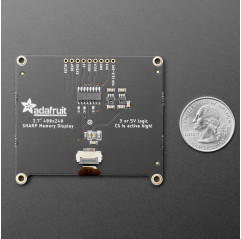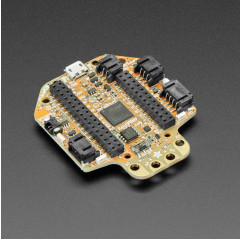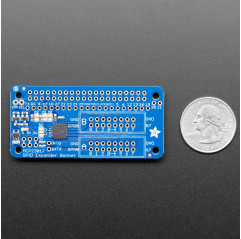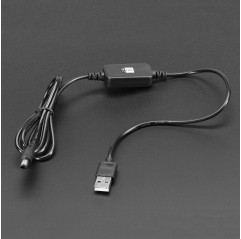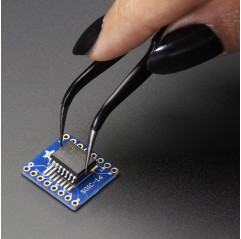This version of the Ultimate GPS is even MORE Ultimate, with support for more GPS-like networks such as GLONASS, for even more coverage worldwide.
It uses a slightly taller module than the classic Ultimate GPS, and uses a little more power. Otherwise its almost identical in functionality:
-165 dBm sensitivity, 10 Hz updates, 99 channels
GPS + GLONASS support
5V friendly design and only 30mA current draw
Breadboard friendly + two mounting holes
RTC battery-compatible
Built-in datalogging
PPS output on fix
Internal patch antenna + u.FL connector for external active antenna
Fix status LED
External antenna support and Pulse-Per-Second output
Compared to the 'classic' MTK3339 chipset firmware, the commands for querying the antenna have changed slightly so existing projects may need to update their firmware. Check the datasheet below for the new antenna query commands. Also, NMEA sentences will start with $GN instead of $GP when both GPS and GLONASS are available.
The breakout is built around the MTK3333 chipset, a no-nonsense, high-quality GNSS module that can track up to 33 satellites on 99 channels, has an excellent high-sensitivity receiver (-165 dBm tracking!), and a built-in antenna. It can do up to 10 location updates a second for high speed, high sensitivity logging, or tracking. Power usage is incredibly low, only ~29 mA during navigation.
Best of all, Adafruit added all the extra goodies you could ever want: an ultra-low dropout 3.3V regulator so you can power it with 3.3-5VDC in, 5V level safe inputs, ENABLE pin so you can turn off the module using any microcontroller pin or switch, a footprint for optional CR1220 coin cell to keep the RTC running and allow warm starts and a tiny bright red LED. The LED blinks at about 1Hz while it's searching for satellites and blinks once every 15 seconds when a fix is found to conserve power. If you want to have an LED on all the time, they also provide the FIX signal out on a pin so you can put an external LED on.
Two features that really stand out about the MTK3333-based module are the external antenna functionality and the built-in data-logging capability. The module has a standard ceramic patch antenna that gives it -165 dBm sensitivity, but when you want to have a bigger antenna, you can snap on any 3V active GPS antenna via the uFL connector. The module will automatically detect the active antenna and switch over! Most GPS antennas use SMA connectors so you may want to pick up one of our uFL to SMA adapters.
Comes with one fully assembled and tested module and a CR1220 coin cell holder. A CR1220 coin cell is not included,.
Adafruit have a nice fancy library for GPS usage, with background parsing, and can set and query the built-in GPS logging capability (called LOCUS). A full tutorial is also available, which has tons of information about the module, how to use the data logger, example code for both CircuitPython & Arduino, and more
Technical Details
Satellites: 33 tracking, 99 searching
Patch Antenna Size: 15mm x 15mm x 4mm
Update rate: 1 to 10 Hz
Position Accuracy: < 3 meters (all GPS technology has about 3m accuracy)
Velocity Accuracy: 0.1 meters/s
Warm/cold start: 34 seconds
Acquisition sensitivity: -145 dBm
Tracking sensitivity: -165 dBm
Maximum Velocity: 515m/s
Vin range: 3.0-5.5VDC
MTK3333 Operating current: 34mA acquision, 29 mA tracking
Output: NMEA 0183, 9600 baud default, 3V logic level out, 5V-safe input
DGPS/WAAS/EGNOS supported
FCC E911 compliance and AGPS support (Offline mode : EPO valid up to 14 days )
Up to 210 PRN channels
Jammer detection and reduction
Multi-path detection and compensation
Breakout board details:
Weight (not including coin cell or holder): 8.5g
Dimensions (not including coin cell or holder): 25.5mm x 35mm x 6.5mm / 1.0" x 1.35" x 0.25"
Datasheets, schematics, GitHub links, Fritzing, and more available in the product tutorial






